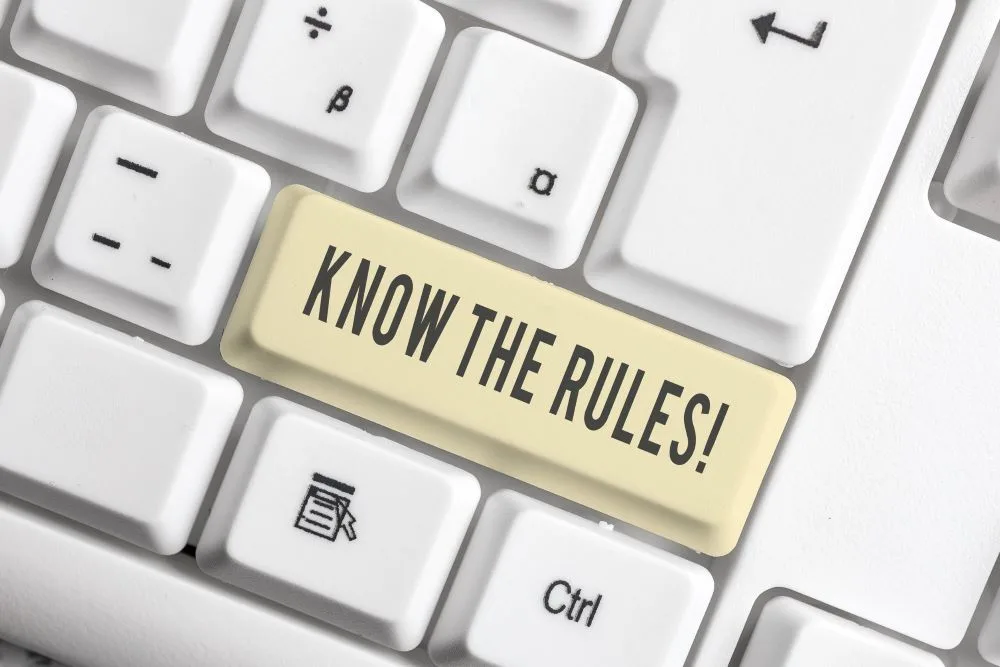As long as you reside in a neighborhood run by an HOA, you are automatically a member of the association. HOAs feature people with a variety of personalities. Sometimes, you could come across homeowners who go out of their way to upset you even when you have done nothing to them.
Dealing with this issue requires maturity. If you respond carelessly to their attacks, you might do something you’ll regret and could even get into trouble. In this article, I’ve put together tips that can help you build a solid case against offending HOA members and the legal actions you can take against them should it get to that point.

Rude HOA members must be dealt with firmly, but politely. Become a model citizen who is community-minded and socially responsible to ensure allies in the “fight”. Understand what HOA members and board members can and cannot do. Approach HOA boards to mediate but take legal action if necessary.
Ensure Your Behavior Is Above Board
Dealing with people with overbearing personalities can be straining. Often, and especially when you are in the right, you might be tempted to fight back with similar tactics. However, while that might give you temporary satisfaction, it would not benefit you in the long run.
You have to stay polite but firm. That means you should not hurl insults at them, but at the same time, you have to stand your ground so that they do not walk all over you.
This approach makes it obvious that they are the aggressor and you are just an innocent recipient of their unjustified attacks. So, if there is a need for third-party opinion, it will be clear that they are at fault.
It wouldn’t matter if the offender is a board member because they are not exempt from the rules of proper conduct. So, if you ever decide to escalate the issue, you would have enough witnesses to prove that you are the wounded party.
Everybody has their endurance threshold, so before you get to yours, leave the vicinity where the person is if you can. Instead of stooping to their level, vent your feelings to your friends and family or perform physical or meditative activities that would be cathartic.
Become a Model HOA Member
As a new HOA member, it is often helpful to study the behavior of other members of the association. That way, you know who to approach in certain situations, who is dependable, and who is always causing trouble.

Rather than being on your neighbors’ blacklist, it’s best if they view you as a fellow responsible homeowner. So, you should follow association rules, be willing to help out whenever you can, and don’t be late in paying your dues. That way, you have people who can vouch for you and would be willing to take up the issue with the offending party.
Make All Payments on Time
Most times other responsibilities push HOA dues to the bottom of your priority list. While it’s okay to be late in making your payments when you can’t help it, don’t make a habit of being late in the payment of your dues. Furthermore, if you are going to be late, tell the board in advance and provide them with the date that the payment will be made.
Don’t forget that the fees are used to maintain and improve shared amenities. Thus, the responsible thing to do is to pay your dues and assessments on time. You shouldn’t be someone that the association has to go after before you finally pay up.
Being perpetually late to pay your dues doesn’t speak well of you and makes you appear uninterested in the development of the community.
On the other hand, if you are timely with the payment of your dues, it makes you a responsible team player.
Show Interest in the Community
It isn’t enough to pay your dues and then forget about other aspects of the association. You don’t have to be the most invested member, but you should show a level of commitment to the community’s affairs if you aren’t already doing so.
This doesn’t just help in these situations, i.e., dealing with rude neighbors, it could come in handy if you find yourself unable to make a payment on time, or you unintentionally violated one of the by-laws, etc.
You should attend meetings frequently. You may not be free to attend every meeting, but your actions whenever you attend a meeting should indicate that you’re invested in the progress and development of the community.
Know What You Can and Cannot Do
In order to be a model HOA member, you shouldn’t be an unwitting violator of the community’s laws. To avoid violating HOA rules, you would have to first be aware of the by-laws as well as Covenants, Conditions, and Restrictions (CC&Rs) of your neighborhood.
The CC&Rs are rules that describe the limitations of what you can and can’t do with your property. It mostly covers issues regarding the outward appearance of your home. Here are some of the areas the CC&Rs cover:
- The maintenance of your lawn. If the HOA doesn’t cover this, they might require that homeowners mow their lawn regularly.
- The appearance of your property. Some HOAs place restrictions on the color of paint used on the exterior of houses. They might also require homeowners to paint the exterior of their property regularly so that paint doesn’t begin to look unsightly.
- The height of your fence. The type of fence is also regulated and your plans to install a new one would have to be approved by the HOA.
- The type or amount of pets you can have.
You have to be informed so that you do not break any rule and give HOA members ammo against you.

You also have to be aware of the by-laws regarding meetings and the duties of board members. This would inform you of your rights as a homeowner and a member of the HOA.
Whenever there are issues between HOA members that cannot be resolved privately, the first course of action is to get the HOA involved. If the offending party is a board member, you’d still have to present the matter before the other board members.
What Can They Do and What Can They Not Do?
Once you’re aware of the by-laws and rules of the association, you’d be conscious of the limit of board members’ responsibilities and authority. Thus, if a board member is being disrespectful, you’d be aware of when they aren’t working in line with the union’s objectives due to personal animosity.
Furthermore, a single member of the board cannot override the other members and proceed to make laws in an attempt to spite you. Should the board members turn a blind eye to your complaints in favor of their colleague then you should be aware of the unenforceable HOA laws.
Regardless of if the individual is a member of the board, the rules of the association are binding for every homeowner.
Moreover, there are laws against discrimination. So, if you think the person’s attitude towards you is because of your religion, color, gender, disability, nationality, disability, or familial status, then you should report the issue to the board. If they are indifferent to your complaints, you can bring the issue up during your next meeting so that other homeowners can mediate.
Keep Thorough Records
If you intend to report the issue, you need proof of their rude behavior. This is important because it would give you a strong case and prove that you aren’t exaggerating. It wouldn’t be a case of your word against theirs, but that of solid proof against their words.
It might be annoying to have to do this, but your records would prove useful whenever you decide to bring the issue before the board or if you decide to take legal actions should the board be unable to resolve the matter.

When keeping records you should include the following information:
- When did it happen?
- Where did it happen?
- What did he/she say or do?
- Did they cross the line to outright harassment?
- When did you notice an intensification in their attacks?
You can also record all your conversations with them, including:
- Telephone calls.
- Emails.
- Letters.
- Text messages.
These records should include your responses to them as well as your requests that they stop being rude or disrespectful.
Verbal communication should also be recorded with dates.
Investigate Legal Options
You can take legal action as long as you aren’t doing anything wrong and the offending party repeatedly harasses you, verbally or otherwise, even after you’ve informed them that you’re not comfortable with their actions.
Depending on the degree of their actions, you can file a harassment charge against them.
Most homeowners in this situation opt for filing a restraining order. So, you can do this as well.

If your HOA is involved in the case, they might opt to pay a portion of the legal fees. However, if they do not, you would have to carry the entire legal expenses alone.
You could also sue the entire board if you notice that they are in support of or are indifferent to a homeowner’s attack on your person due to reasons that are discrimination-based.
Legal action should be the very last recourse. It is neither cheap nor pleasant.
Sources
https://hjlawfirm.com/dealing-with-difficult-homeowners-cant-we-all-just-get-along/
https://cedarmanagementgroup.com/bullies-on-your-hoa-board-handle/
https://www.hoamanagement.com/code-of-ethics-for-hoa-board-members/
